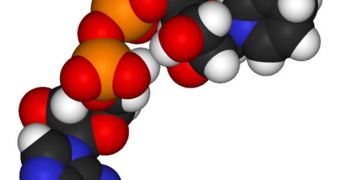A groundbreaking new study was recently published by researches in The Netherlands, in which they show that an enzyme plays a role in supporting the damage strokes produce in patients.
The research group discovered that inhibiting the levels of the protein called NADPH oxidase 4 (NOX4) has the potential to reduce the amount of damage stroke does to the brain.
The enzyme was found to exist in elevated concentrations in both human and mice models that suffered from stroke. The new investigations was conducted exclusively on unsuspecting lab mice.
A paper detailing the investigation was recently published in the September issue of the open-access scientific journal PLoS Biology, which is edited by the Public Library of Science.
Discoveries such as this have tremendous potential, given that the range of possible treatments for stroke victims is very narrow. With all the advancements of modern medicine, there is still little doctors can do for stroke patients.
This happens because the only drug that can be used needs to be administered within three hours of the stroke. However, that time frame is usually long-since closed when doctors set their diagnostic.
The medicine tPA, a clot-busting drug, is now the only viable course of treatment for addressing stroke damage, Science News reports.
But, thanks to the new discovery, researchers in the field may now be able to explore new chemical and biological pathways of attacking the conditions. Such research may lead to the creation of new drugs.
The investigation was conducted by scientists at the Maastricht University, who were lead by pharmacology expert Harald Schmidt.
He and his group focused their attention on NOX 4 because this is an enzyme that belongs to a family of molecules which produce free radicals.
These chemicals are very hazardous to the human body, because they are highly reactive, and also capable of killing cells and damaging tissues for within.
The new work “is interesting because no one’s really looked at NOX4. This whole field is still relatively new,” says neurologist Midori Yenari.
He is based in the School of Medicine at the University of California in San Francisco (UCSG).
“We need to validate these findings in other species. There must be some physiological role for this enzyme. It’s not just sitting around there, waiting to be deleterious in a stroke,” Schmidt reveals.
“But its normal function is still an open question,” he concludes.

 14 DAY TRIAL //
14 DAY TRIAL //